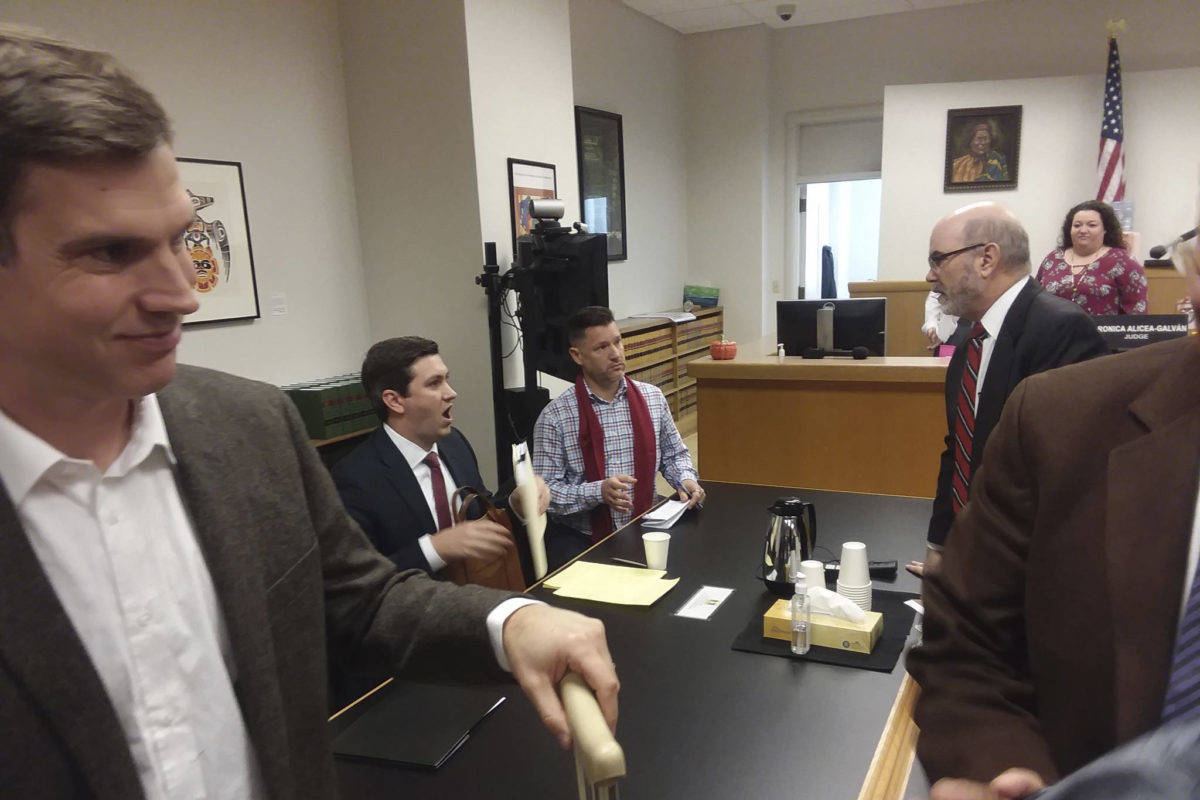By Casey Jaywork
Seattle Weekly
A ballot petition designed to obstruct King County’s public health response to the heroin crisis was struck down by King County Superior Court Judge Veronica Alicea-Galván on Oct. 16.
She ruled that I-27 is “invalid, null and void because it extends beyond the scope of the local initiative power” because it tried to override the authority of public health authorities and is thus unfit for the February 2018 ballot.
In September 2016 a public health task force recommended supervised drug consumption sites (called Community Health Engagement Locations, or CHELs) as part of a comprehensive response to the opioid/heroin overdose epidemic. Similar sites have operated for decades in other countries, without any known overdose deaths. A growing medical consensus recognizes supervised consumption sites as a healthier alternative to incarceration for drug crimes.
“Studies from other countries have shown that supervised injection facilities reduce the number of overdose deaths, reduce transmission rates of infectious disease, and increase the number of individuals initiating treatment for substance use disorders without increasing drug trafficking or crime in the areas where the facilities are located,” says the American Medical Association, which endorses such sites.
“Around 100 supervised consumption spaces currently operate in Australia, Canada, Switzerland, Norway, Germany and the Netherlands, and multiple studies show that these sites save lives and can help to connect people struggling with substance abuse to the services they need,” said Michael Ninburg, executive director of the Hepatitis Education Project and another member of Protect Public Health, according to a press release. “These programs are proven to reduce the risk of fatal overdose and prevent transmission of HIV and hepatitis C, as well as to reduce outdoor drug use in neighborhoods. Our current approach to the opioid crisis isn’t working. We need to do more, and today’s decision will allow us to do so.”
The Mercer Island City Council has not taken up the issue of supervised drug consumption sites. Other Eastside cities have outright banned the sites within city limits — including Bellevue and Sammamish — while the Issaquah City Council on Oct. 16 enacted a six-month moratorium on injection sites to allow time to further study the issue.
The argument made by attorney Knoll Lowney against I-27 went like this:
1. Local ballot initiatives can’t take away authority delegated to city officials by the state Legislature.
“An initiative is beyond the scope of the initiative power if the initiative involves powers granted by the legislature to the governing body of a city, rather than the city itself,” reads one quotation from the judgment in Mukilteo Citizens for Simple Gov’t v. City of Mukilteo. And another from City of Sequim v. Malkasian: “Stated another way, the people cannot deprive the city legislative authority of the power to do what the constitution and/or a state statute specifically permit it to do.”
2. State law delegates health decisions to local health officials — specifically, the local health officer and the Board of Health.
3. Therefore, local ballot initiatives cannot override public health decisions made by local health authorities, including how to address the opioid crisis.
On Oct. 16, Judge Alicea-Galván agreed, declaring I-27 “invalid, null and void,” and enjoining the King County Council and the director of King County Elections from putting it on the ballot.
“This is a major victory for public health, and will allow us to take the steps we need to implement an effective harm reduction approach to help those suffering from addiction to get the help that they need,” said Dr. Bob Wood, former director of the HIV/AIDS Program at Public Health Seattle/King County, according to the release. “If I-27 was allowed to go to the ballot, other critically important and effective public health policies would also have been put at risk, including needle exchange programs, or even vaccination requirements.”
Also on Oct. 16, the King County Council voted to approve an alternative to I-27 that could have appeared alongside it on the February ballot. That alternative would have allowed voters to opt for two pilot CHEL sites (which would almost certainly be sited in willing host cities, though that was not explicit in the ordinance). Chair Joe McDermott and Councilmembers Jeanne Kohl-Welles, Rod Dembowski, Larry Gossett, and Claudia Balducci voted in favor of ordinance 2017-0420, while Reagan Dunn, Kathy Lambert, Pete von Reichbauer and Dave Upthegrove voted against. Assuming Alicea-Galván’s ruling stands, the alternative is now moot.
Explaining his vote via email afterward, Upthegrove said he’d wanted “to ensure the county doesn’t move forward on locating a facility within a city that has adopted a policy to not permit them in their city … My main argument … against the alternative was the absence of any such assurances.”


